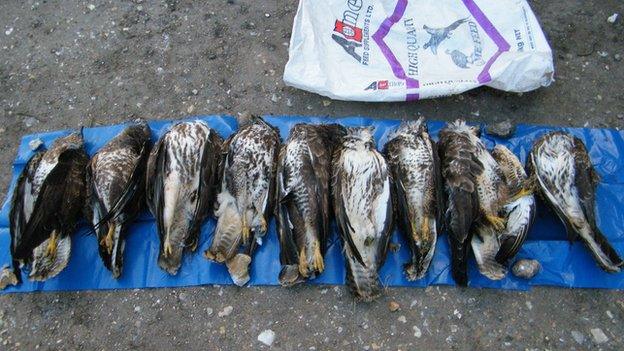'Worst' bird of prey poisoner Allen Lambert given suspended sentence
- Published
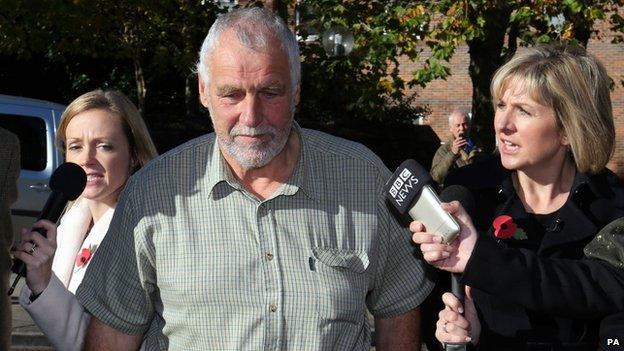
Allen Lambert was told his crimes had "crossed the custody threshold" but his sentence would be suspended
A gamekeeper convicted of "the worst case of bird of prey poisoning" recorded in England has been given a 10-week suspended sentence.
Allen Lambert, 65, who worked on the Stody Estate, near Holt in Norfolk, was found guilty of deliberately killing 10 buzzards and a sparrowhawk.
Head of RSPB investigations Bob Elliot said the discovery of the carcasses at Lambert's home was "truly dreadful".
Norwich Magistrates' Court heard he did it to protect pheasants he was rearing.
In October Lambert, of Holt Road, Edgefield, was also found guilty of possessing pesticides and items used to prepare poison baits. He had pleaded guilty to five other charges, including the illegal use of pesticides.
District Judge Peter Veits said the offences had "crossed the custody threshold" but said his sentence would be suspended.
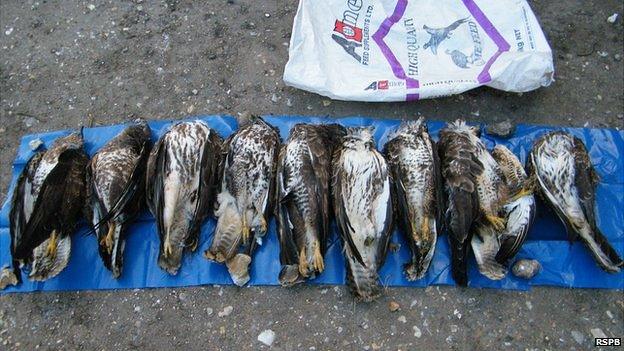
A number of dead buzzards were found at Allen Lambert's home
Lambert's 10-week jail sentence was suspended for a year and he was ordered to pay prosecution costs of £930.
Judge Veits said: "In other industries employers as well as the employee could be facing prosecution in such cases, and I hope therefore that this case can serve as a wake-up call to all who run estates as to their duties."
The RSPB said it was calling on the government to bring in stronger legislation to make sporting estates more accountable for the actions of their staff.
Birds of prey are protected by law and the Stody Estate has been a national pioneer in wildlife enhancement schemes.
The RSPB said it was the worst bird of prey poisoning case it had seen in England and was one of the worst ever in the UK.
'Tricky fox'
The hearing at Norwich Magistrates' Court followed an investigation at the game shooting estate in April 2013 by RSPB officers.
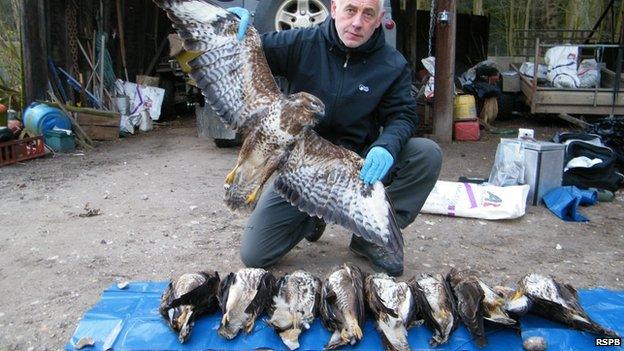
The birds of prey were discovered dead by RSPB officers
They found the remains of several birds of prey in woodland and a feed bag containing nine dead buzzards in Lambert's house.
Analysis of the remains found 11 birds had been poisoned.
Police found containers of the pesticide in Lambert's car and storeroom, as well as a syringe and needles.

Roger Harrabin, BBC environment analyst
What is the responsibility of the landowner in a case like this? Well, it depends where you live.
In England a landowner is not responsible for a gamekeeper's crimes.
There is no evidence that the owner of the prestigious Stody Estate, Charles MacNicol, knew about the poisonings.
The Scottish government has made landowners share the blame for gamekeepers' misdemeanours. It says there appears to have been a significant drop in killings, external.
The RSPB wants England to follow suit but the environment department Defra says the evidence that the policy is working is not strong enough.
The RSPB is also calling for the Stody Estate to be stripped of government grants it has received for promoting wildlife.
Follow Roger on Twitter, external.

During the trial Lambert claimed a dog walker with a grudge against him had planted the dead birds, but the district judge said his theory was "implausible".
Earlier the court was told Mr Lambert still claims he was not responsible for the death of the birds and he only kept the poisons to deal with "a tricky fox".
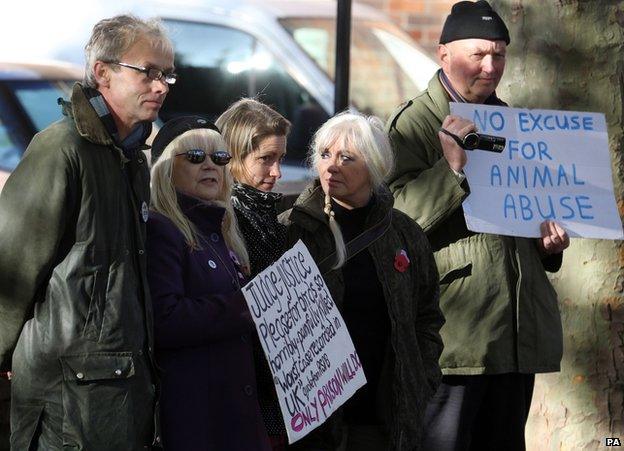
Protesters held placards outside the court during the hearing
andneedlesrspb.jpg)
Analysis found the birds had been poisoned with a pesticide
The Stody Estate is now being investigated by the Rural Payments Agency which could withdraw tens of thousands of pounds of subsidies if the estate is found to have been negligent, prosecutor Kevin Eastwick said.
In a statement, the estate distanced itself from the offences saying it had considered Lambert a "valued and trusted member of staff" and that he was "not authorised, trained or asked to kill wildlife".
- Published6 November 2014
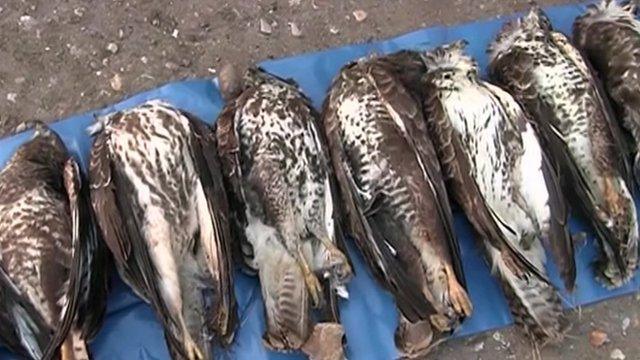
- Published2 October 2014
